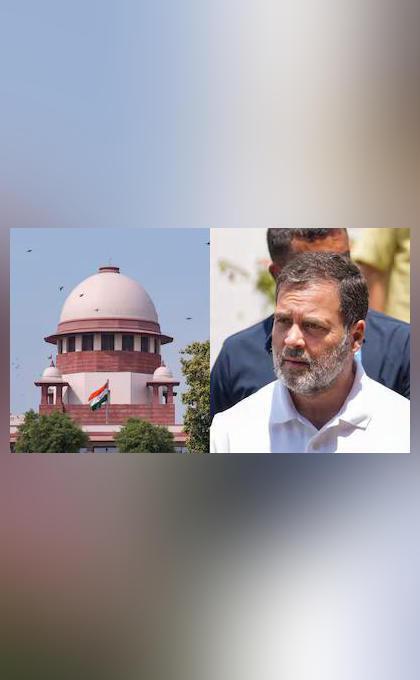
Why Ask on Social Media & Not in Parliament: SC to Rahul on ‘Land Grab’ Claim
The Supreme Court of India recently made a stern rebuke to Congress leader Rahul Gandhi over his claim that China had grabbed 2,000 square kilometers of Indian land. The apex court’s criticism was not limited to the accuracy of Rahul’s statement, but also his modus operandi of making such claims on social media platforms instead of seeking answers through the established democratic channels of the Parliament.
The controversy surrounding Rahul’s statement dates back to 2020, when he made the claim that China had occupied 2,000 square kilometers of Indian land. The statement was met with widespread criticism from the government and other opposition parties, who accused Rahul of making false and inflammatory claims to garner attention. The central government even launched a fact-checking exercise to verify the accuracy of Rahul’s statement, which ultimately concluded that there was no evidence to support his claim.
The Supreme Court’s rebuke of Rahul came while hearing a defamation case filed by the Union government against him over his remarks about the Indian Army. The court stayed the defamation case, but not before expressing its discontent over Rahul’s habit of making such claims on social media platforms instead of seeking answers through the proper channels of the Parliament.
During the hearing, the Supreme Court asked Rahul’s counsel, Kapil Sibal, how his client knew that 2,000 square kilometers of Indian land had been occupied by China. The court’s skepticism was palpable, as it pointed out that Rahul’s claim was not backed by any credible evidence or official records. The court’s concerns were further amplified by the fact that Rahul had made similar claims in the past, without providing any concrete evidence to support his assertions.
The Supreme Court’s rebuke of Rahul was not just about the accuracy of his statement, but also about his modus operandi of making such claims on social media platforms. The court explicitly stated that Rahul should have sought answers to his questions through the proper channels of the Parliament, rather than making sensational claims on social media to garner attention.
The Supreme Court’s criticism of Rahul’s behavior is not without merit. In a democratic society, elected representatives have a responsibility to seek answers to important questions through the established channels of governance. Social media platforms, while important tools for communication and dissemination of information, are not a substitute for the formal processes of governance.
Moreover, Rahul’s behavior has set a bad precedent for other elected representatives. If leaders can make inflammatory claims on social media without being held accountable, it can undermine the credibility of the democratic process and create a culture of impunity.
The Supreme Court’s rebuke of Rahul is also a reminder of the importance of fact-checking and verification of information before making public claims. In today’s digital age, misinformation can spread quickly and have serious consequences. Elected representatives have a responsibility to ensure that the information they spread is accurate and credible, and not just designed to create sensational headlines or garner attention on social media.
In conclusion, the Supreme Court’s rebuke of Rahul Gandhi over his ‘land grab’ claim is a reminder of the importance of seeking answers through the proper channels of governance. Elected representatives have a responsibility to seek answers to important questions through the Parliament, rather than making sensational claims on social media to garner attention. The court’s criticism is also a reminder of the importance of fact-checking and verification of information before making public claims.






